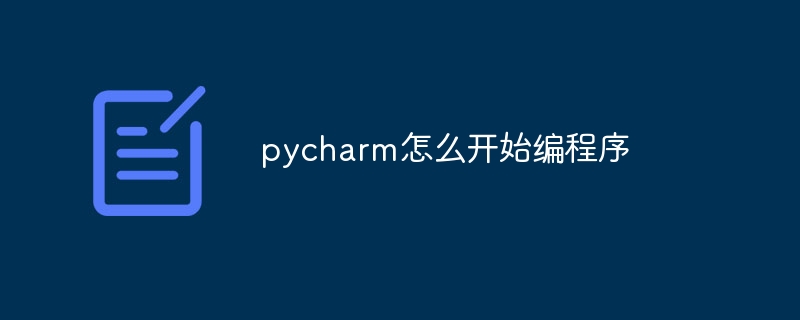To start writing programs in PyCharm, you need to: install and set up PyCharm; create Python files; write Python code; run the program.

How to start writing programs in PyCharm
Step one: Install and set up PyCharm
- Download and install PyCharm from the PyCharm official website.
- Open PyCharm and select "Create New Project".
- Enter the project name and path as needed, and click "Create".
Step 2: Create the Python file
- Right-click the project folder in the project file tree and select New> "Python files".
- Enter the file name and click "OK".
Step Three: Write Python Code
- In the Python file, type the Python code.
- Use proper indentation, comments, and variable naming conventions to keep your code clean and readable.
Step 4: Run the program
- Click the "Run" button on the toolbar, or press Ctrl F5 (Windows/Linux) Or Cmd F5 (Mac).
- PyCharm will run the program and display the output in the console.
Tips:
-
Use PyCharm’s IntelliSense feature: PyCharm will automatically complete code snippets and provide code tips to Simplify the coding process.
-
Utilize the debugger: PyCharm’s built-in debugger helps you find errors in your code and step through your program.
-
Manage virtual environments: PyCharm allows you to create and manage virtual environments to isolate the specific Python versions and packages required for your project.
-
Use version control: PyCharm integrates with Git and other version control systems, allowing you to track code changes and work together.
The above is the detailed content of How to start programming with pycharm. For more information, please follow other related articles on the PHP Chinese website!






